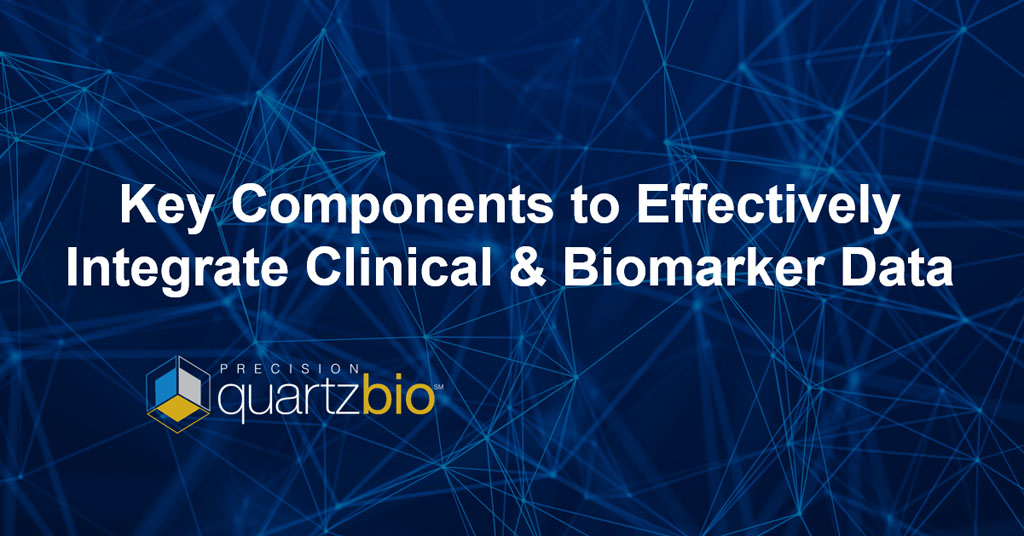
November 12, 2020 — In this article, QuartzBio Managing Director Scott Marshall discusses critical steps to integrating clinical, PK, and exploratory data on-study to advance operational and translational insights (without all the manual effort that has become all too common). With our experience working across dozens of clients and hundreds of studies, we’ve identified four key components necessary to efficiently centralize.
We published a few weeks back (link), I highlighted the value our team has seen in centralizing PK, clinical, and exploratory data – to drive insight and the ability to impact both on-study operations (especially biomarker operations) and to build a data asset to advance translational intelligence. At the same time, I alluded to the challenge presented by the nature of data dispersed across stakeholders (e.g. CROs, sites, labs, sponsors) and systems (e.g. EDC, CTMS, LIMS).
Figure 1. Representative Drug Development Data Ecosystem for a Biomarker-Centric Program Drug Development Data Ecosystem

Given the breadth of the data sources inherent within increasingly decentralized drug development, as well as the diversity of data types and lack of data standards – attaining centralized visibility is typically a laborious, manual, and resource consuming exercise.
With our experience working across dozens of clients and hundreds of studies, we’ve identified four key components necessary to efficiently centralize:
Ingestion and Acquisition: streams of incoming source data can be acquired via APIs / connectors, S3 bucket-bucket transfers or through the secure highspeed data upload protocol
Cleaning and QC: smart algorithm-based data structure and element discrepancy identification; flexible engines to run assay and data specific QC protocols
Harmonization and Mapping: proprietary adaptive data dictionary that learns and updates common nomenclatures over time to seamlessly create a common, flexible model
Cross Linking: leveraging the common data model and adaptive data dictionary enables your data to seamlessly talk to each other and you
As a result of privacy, intellectual property, and data integrity requirements: these solutions must also incorporate a number of data security and compliance considerations to align with a global regulatory environment and protect sensitive data. In future updates, we’ll highlight general regulatory and privacy considerations, data accessibility and FAIR considerations as well as opportunities for direct making these centralized data assets actionable:
Biomarker Operations KPIs: critical metrics for today’s operating environment that span sample quality, site performance, and data availability to address the needs of clinical operations, translational science, and data management – plus WHY they matter.
Insight Generation: drawing insights from exploratory data to identify biological signatures associated with response and drug exposure to delivering translational intelligence today, not waiting for solutions that may accelerate access to translational intelligence years in the future
If you would like to learn more about how we approach these solutions, view our webinar on demand by registering here: Webinar Registration Link.
Author: Scott Marshall, PhD | Managing Director | QuartzBio, part of Precision for Medicine

